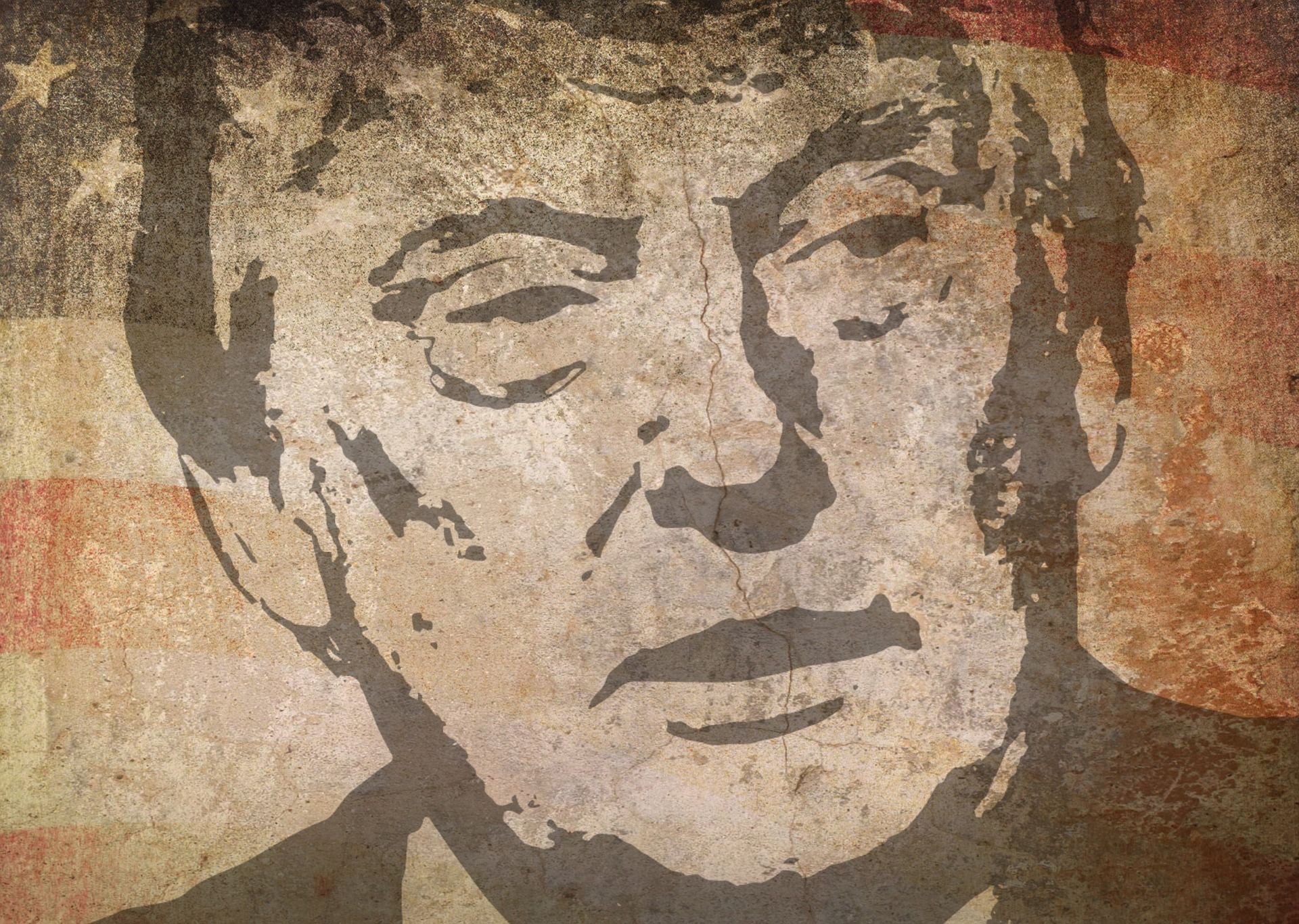*Support NewsLeaf.com by becoming a Patron today by clicking here.*
On 10th of July 2020, Donald Trump commuted the sentence of Roger Stone, a Republican operative who in February of this year was sentenced to 40 months in prison on seven counts, including witness tampering and lying to investigators. Stone was a major Trump ally in 2016 and cut his political teeth back in the ‘70s working for Nixon’s 1972 re-election campaign. Stone was famed for his dirty tricks, placing a spy on the Hubert Humphrey campaign team and bragging that: “by night I’m trafficking in the black arts”. In the face of a doomed election campaign and a centre ground flocking towards Vice President Biden, the Trump campaign are moving towards a Nixonian campaign in the dark arts, stealing a victory in the face of a flailing campaign.
Louis DeJoy, Postmaster General (and massive Trump campaign donor) has been in the role since the 16th of June 2020 and has set about on a crusade against postal voting in the 2020 election (not that his appointment has anything to do with his allegiance to Trump, of course). Since taking up the position DeJoy has rarely been far from headlines; accused of stripping the US Postal Service (USPS) bare in an attempt to make it harder for Democratic cities to vote by mail – a high profile voter suppression campaign to assist the president in his seemingly doomed re-election bid.
Trump has been accused of high-profile dark arts before, his 2016 election campaign was only exonerated of direct collusion with the Russian government after 18 months of investigations and even then, the Special Counsel investigation resulted in several prison sentences for Trump associates – including Roger Stone.
With America facing the world’s highest number of Coronavirus cases, the Democrats have been working towards mandatory postal ballots, ensuring that voters are not disenfranchised by the lack of confidence in public safety. Many states have introduced bills which will automatically send registered voters a ballot, making it easier to vote by mail and reduce the potential rise in infection rates following the November 6th election day, with California being the highest profile to move towards an all-postal vote election. This has been met by cries of foul play from the Trump campaign, who are raising fears of voter fraud (despite fraud accounting for less than 0.001% of ballots cast in the 2016 election).
Also read:
- Taylor Swift donates £23,373 to help student’s university education
- Algorithms are amplifying inequalities | By Calum Paton
- Here are all the records that BTS’ new single ‘Dynamite’ has achieved so far
After weeks of cuts to the USPS by the Postmaster General – which included the removal of postal drop boxes in many Democratic cities in key states – the cuts were halted, and the Democrats attempted to push through a bill to increase funding to the post service. This has put the breaks on attempts to limit the ease of postal voting, but has not reversed the significant damage caused by Louis DeJoy in his short tenure.
The campaign to ‘defund’ the US postal service began months ago for the Trump team, with Trump speaking about the fallibility of the postal service being a competitor to the likes of UPS and Amazon during a press conference at the start of the pandemic.
Postal voting is likely to significantly increase turnout at this election, and with Trump appealing to only a small portion of the electorate with his divisive rhetoric, his hopes of a victory rely on low turnout for Biden and high turnout amongst his own base. In March Trump admitted that Republicans would “never” win an election again if voting was made easier, providing a glaring insight into the campaign’s motivations for their gutting of the USPS.
“The things they had in there were crazy. They had things, levels of voting that if you’d ever agreed to it, you’d never have a Republican elected in this country again.”
But destroying the USPS in an attempt to lower voter turnout is not the only dirty trick Trump is likely to deploy before election day; Trump may outright bribe voters.
Dishing out cheques to Americans when the coronavirus’ economic bite started to hit, Donald Trump forced a delay on the release of the funds so that his signature could be emblazoned on the front. It was not the American government helping you, was the message, it was Donald J. Trump that was sending you a cheque.
This may not have had much of an effect on his popularity at the time, but the Republicans in Congress have refused to rule out the possibility of a second round of cash payments directly into the accounts of ordinary Americans. What impact would a cheque, emblazoned with the name of the Republican candidate, have on the final days of the race? Probably quite a significant one.
Hillary Clinton led Trump by a similar margin to Biden in 2016, with her widely expected to win comfortably and heading into election day with a healthy lead. In her tell all book, ‘What Happened’, she blamed a large part of the result on the decision by James Comey to notify Congress of a new investigation into her emails. US elections are known for their October surprises that sway the result in the final days, it would be less of a surprise if, on this occasion, Trump wired a thousand dollars into the accounts of swing state voters.
Even if the Democrats, who have a majority in the House of Representatives, attempted to prevent this bribery of the American electorate, the Trump campaign could pitch it as a clear attempt to prevent Americans from receiving the financial support that is much needed to kick-start the economy: “Joe Biden doesn’t care about real Americans”, they could say.
Is this legal? Unlikely. But neither were most of the actions of Roger Stone in 1972. It speaks to the robustness of American democracy as to whether the system of checks and balances will be enough to prevent these dirty tricks in 2020.
Much of the existing ‘law’ on American democracy is not law at all, and instead a series of conventions and loose rules that have existed for decades and centuries. The loser conceding defeat and allowing for a peaceful transition of power is little more than a tradition; Trump has proven on plenty of previous occasions that he is willing to break with tradition. Failure to release his tax returns in 2016 was only the tip of an iceberg that shows a complete unwillingness to operate in the light, rather than in the cloak and dagger world of Nixonian darkness.
A quick glance at the media in recent weeks will show Trump’s lackeys constantly repeat the phrase: “in a free and fair election, Donald Trump will win”. Regardless of his dirty tricks, Donald Trump looks set to contest the election result if he loses and claim that it was stolen away from his through fraud; the fact that he is the one engaging in voter suppression is not important.
2020 is unlikely to be a fully free and fair election, and regardless of the result, the controversy and legitimacy surrounding the result is unlikely to be settled on November 6th.
______________________________________________________________________________

Calum Paton is a History and Politics graduate from the University of Warwick. His writing predominantly focuses on American and British politics. Twitter: @Paton_Calum




